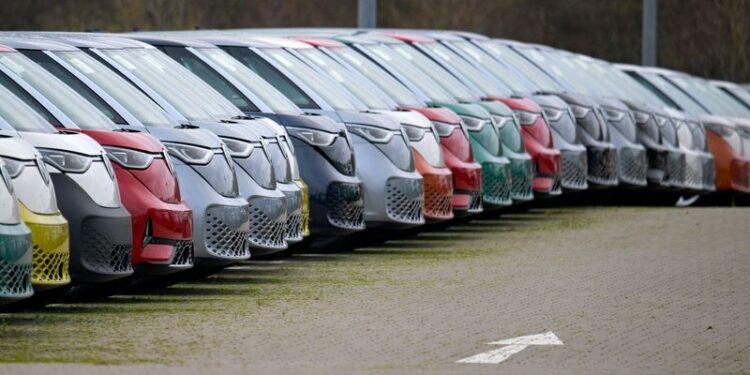By Gergely Szakacs
BUDAPEST (Reuters) – The car industry in Europe is navigating some rough seas, and this could have ripple effects on the economies of central Europe, potentially impacting the quality of bank assets. However, according to S&P Global, the banks in this region appear robust enough to weather any turbulence in their automotive-related financial portfolios.
Across the continent, car manufacturers are closing plants and letting go of significant numbers of employees. They are battling weak consumer demand, rising operational costs, competitive pressure from China, and a transition to electric vehicles that isn’t moving as fast as anticipated.
In central Europe, the automotive industry isn’t just another sector—it’s a cornerstone for economic growth. It contributes between 5% and 10% of the area’s GDP and employs around 5% of its workforce, S&P reports.
Though the direct credit exposure of Central and Eastern European (CEE) banks to the auto sector is relatively modest—about 3% to 5% of their total corporate loans—a major downturn could potentially dampen the region’s economic performance and affect banks’ asset quality, the report suggests.
Even as major auto companies have shifted their funding strategies from traditional bank loans to capital markets, shocks within the industry could still trigger significant ripple effects.
Challenges such as potential U.S. tariffs on European car imports, stricter EU emissions standards starting 2025, and fierce competition from Chinese electric vehicle manufacturers are also on the horizon, S&P highlighted.
Further stress within the automotive sector might lead to increased credit losses, chiefly due to the effects on suppliers. Nevertheless, S&P believes that the earnings and capital reserves of CEE banks remain strong enough to absorb such financial blows.
On a brighter note, disruptions in global trade and the transition to electric vehicles could present fresh opportunities for nations like Hungary and Serbia. Large Chinese banks are closely watching these developments, potentially eyeing new investments in the region.
Under the leadership of Prime Minister Viktor Orban, Hungary has emerged as a pivotal trade and investment partner for China. This is a stark contrast to certain other European Union nations that are considering reducing their reliance on the world’s second-largest economy.
In 2019, ICBC established a bank in Austria, operating across Central and Eastern Europe much like other prominent Chinese banks with subsidiaries in the area. S&P analyst Cihan Duran also pointed to the activities of Bank of China and China Construction Bank as similar examples.
Hungary draws substantial interest as one of the largest markets where partnerships are forming with Chinese companies, as well as Hungarian firms aligning with Chinese investments and funds.
(Reported by Gergely Szakacs; Editing by Edwina Gibbs)
















